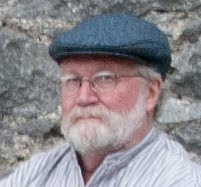Over on the Nellie Blog, Mike Peterson recently posted an article about the hazards Moose pose on Maine’s roads. My students are dealing with Kepler’s laws of planetary motion at this early point in the Spring quarter. I watched an episode of one of the “Law and Order” tv cops-n-robbers franchises last night in which the old “motive-means-opportunity” method of identifying murder suspects was invoked. These three items, weirdly, are not without connection.
Tycho Brahe had a moose.
Brahe (1546 – 1601) was the last and the greatest of the pre-telescope astronomical observers. A fabulously wealthy member of the Danish nobility, his island domain between Denmark and Sweden was home to astonishingly accurate celestial position-measuring equipment, which he designed and used from 1576 to 1597. The data he amassed there concerning the positions of the planets against the background of the stars were later used by Kepler to discover the underlying laws that govern the planets’ orbits and to demolish, once and for all, the notion that the Earth was the center of all Creation.
Brahe’s great wealth (at its height estimated to be fully one percent of all the economic power in Denmark) allowed him to indulge many odd whims – including the acquisition of a pet moose. He was proud of the moose, and happily agreed when a neighboring noble asked to show it off at a dinner party in the neighbor’s palace. The party guests happily shared their beer with the moose. Lots of beer.
Lots and lots of beer.
The moose staggered toward a stairway and, I’m sure to the mortification of the guests, disappeared down it. Luckily, no party guest was on the stairway that the creature careened down, or there would have been more fatalities than the poor moose on that evening. It died on the landing, so to speak. The lesson here is that you need to be careful about moose not only on the backroads of Maine, but also on stairs above you. Especially if the moose is drunk.
The moose wasn’t the only member of the Brahe household that was fond of ethanol. Tycho himself had an appetite that was legendary.
He had worn out his welcome in his native Denmark by 1597. I can find two versions of why he lost his estate and his income and his welcome, both of which may be true. One is that his mistreatment of his tenant laborers became too scandalous for the King and the Chancellor to tolerate. The other is that the Danish Chancellor had kicked Tycho’s dog “Lep the Oracle” during a tour of Brahe’s facilities, and Brahe had furiously evicted him from the premises. When the old king, Frederick II, died, the Chancellor, still smarting from the insult, convinced the new Danish king, Christian IV, to evict Brahe from his estate, cut off his income, and invite him to leave the country. In either case, Christian IV determined that something was rotten in his kingdom, and it was probably Tycho, so he was gone from Denmark in 1597 like Barry Bonds from San Francisco in 2007.
So, in 1597, Brahe was without income or country. He was, however, with considerable fame, and Rudolph II of the Holy Roman Empire snatched up the free-agent astronomical major-leaguer, offering him the position of Imperial Mathematician and a palace in Prague. Brahe accepted the offer, and set up shop – without astronomical instruments, but with entourage, family, and big-time street cred for partying -- in Prague in 1599.
Meanwhile, down in Graz (about 600 kilometers to the South of Prague in what is now Austria), a brilliant, strange high-school math teacher was trying to figure out the universe. Johannes Kepler had convinced himself not only that the Earth was a planet, and that the planets all orbited around the Sun, but that the planets were supported in their orbits by an invisible framework of Plato’s five perfect solids nested within one another. The problem was that he just couldn’t make his model fit the reality of recorded observations (Kepler didn’t make any observations himself, being the prototype of a modern theoretician.)
Luckily for Kepler, his school was closed, his books were burned, he was fined ten percent of all his assets, and he was kicked out of the country by an archduke who had switched religious allegiance from Protestant to Catholic. Yes, “luckily,” because that forced him to accept an invitation from Tycho Brahe to join Brahe’s new group of assistants at the Prague palace up North. There, Kepler thought, he would have access to Brahe’s famous but well-guarded data about the planets’ positions and would finally be able to prove his theory concerning the five solids.
But things weren’t quite that simple.
Brahe guarded his data trove from decades past jealously. Moreover, there were several assistants, and Kepler wasn’t the lead dog in that pack. Franz Tengnagel , a mathematician of little talent but a serviceable message-carrier, had grabbed the top assistant’s position by marrying one of Tycho’s daughters. Also, Kepler apparently had a priggish attitude concerning the nonstop party atmosphere in the palace and its petty intrigues. In Carl Sagan’s words, Kepler and Brahe “repeatedly quarreled” and the “synthesis of observation and theory, which is at the root of modern science, teetered on the precipice of their mutual distrust,” and Kepler just couldn’t get his hands on the data he so badly needed, the data for which he had abandoned his life and career in Graz.
But Kepler caught another break. Until then in robust health, Brahe took ill following a party (what else) in early October, 1601. He suffered severe pain and urinary distress until he died on October 24th at age 54, and fate had opened the way for Kepler finally to obtain the data he coveted. Yep, fate did it, certainly. Sad for Tycho, though, but, hey, that's how things go sometimes, luck of the physiological draw.
Or maybe not.
Until the late 1900’s, Brahe’s death was attributed to his gluttony in one way or another. Sagan, in the above-quoted episode #3 of Cosmos, says in somber tones that Tycho died of “his habitual over-indulgence in food and wine.” Not so. In 1996, a nuclear analysis of one of Tycho’s preserved hairs showed that he died of mercury poisoning, and in a specific and troublesome way. The analysis showed that the fatal mercury had been ingested less than 24 hours before death. The following is from tychobrahe.com:
“In the summer of 1996, the University of Lund carried out a PIXE analysis of hair from Tycho Brahe (PIXE = Particle Induced X-ray Emission). With the PIXE method it has been possible to see not only what substances are present in the hair but also their precise location. If the mercury came from the embalming process, the mercury would be found on the outside of the hairs. If Tycho Brahe had been slowly poisoned by chemical experiments or the gold-plating process the mercury would be inside long sections of the hairs. What the analysis actually has shown is that only one of the hairs contained mercury. This hair was the only one with the hair follicle still attached, and the mercury was present close to the hair follicle. It was inside the hair, which means that it came through the body via the blood. It is calculated that the mercury concentration rose very quickly, in just 5-10 minutes, and that it sank just as fast. This and the mercury concentration's distance from the hair-root, show that Tycho Brahe must have ingested a large dose of mercury about 20 hours before his death. Unfortunately, the analysis is unable to explain the presence of mercury in Tycho Brahe's body. He might have taken it himself as a medicine for his illness. He might have been deliberately poisoned. It is impossible to know for sure. It can only be concluded that he mercury poisoning might have caused his death. The PIXE analysis have been questioned by other scientists.”
Despite that last disclaimer, Tycho was pretty clearly poisoned, either accidentally by taking large doses of mercury-laden medication to alleviate his bladder distress… or by someone who stood to gain from his death.
Four years ago, Joshua and Anne-Lee Gilder published Heavenly Intrigue, a book in which they connect the tv-recipe of motive, means, and opportunity to point the finger of blame for Tycho’s death straight at Johannes Kepler. Motive: to obtain data necessary to fulfill his lifelong obsession with determining the underlying support of the planets. Means: Kepler lived in Tycho’s house, knew of Tycho’s dabbling in alchemy and pharmacy and undoubtedly knew where Tycho’s quicksilver (mercury) was. Opportunity: he was famously hovering around Tycho’s sickbed during his last, severe bladder infection, to the extent that he sent letters quoting Tycho’s delirious mumblings to others.
I think that it’s at least equally possible that Brahe self-medicated himself to death, but it’s fascinating to think that Kepler may have committed murder in order to gain his revolutionary insight into the way the universe works.
It’s indisputable, by the way, that Kepler committed another act that would be a felony in the modern world to gain the same end. After Brahe died, Kepler still couldn’t get the data he needed – it fell to the hands of Franz Tengnagel, the fellow who had married Tycho’s daughter.
So Kepler stole it. Flat-out burgled it. And later cut a deal with Tengnagel to avoid legal liability by giving Tengnagel equal credit in the first publication of results based on the stolen data.
You can look it up. Google stands ready to help.


8 comments:
Find the servant who had cared for the moose. Long-simmering resentment over the poor animal's death would be a powerful motive. And "cherchez la orignaux" is always good advice anyway.
Geez, Mike, you get up early. I haven't even finished the fine-tuning editing here yet.
This entry is a near perfect....wouldn't want you to stop trying for perfection now would we....example of why I think you are a worthy author. You generate interest in [and sympathy for] the characters quickly and then lay out the important points of the story.
It isn't academic level research, but it is good storytelling. Sort of like a Ripley's tale or Paul Harvey's "Rest of the Story".
There is a market for good writing that entertains and informs even if it lacks the rigor associated with formal research. For examples, see the recent works of Steven Pressfield; Gates of Fire, Virtues of War, Tides of War, The Afghan Campaign.
Absolutely fascinating story. What intrigue!
That's just terrific stuff and, except for Kepler's apprenticeship to Brahe, previously unknown by me. Thanks!
Did the moose pull a rabbit out of his hat before he fell?
Adam Harrington
Thanks, all. This was fun.
Dann, what really tickles me about this post is that it may be the only article written about Tycho Brahe in the last 400 years that doesn't mention his nose, not even once.
Adam, yes he did, but it was a-lyin' to him.
Ooh. Good thing I didn't spoil your record by mentioning his N-O-S-E in the comments. But, yeah, I've always pictured him as looking like the villain in Cat Ballou, but with an astrolabe.
Post a Comment